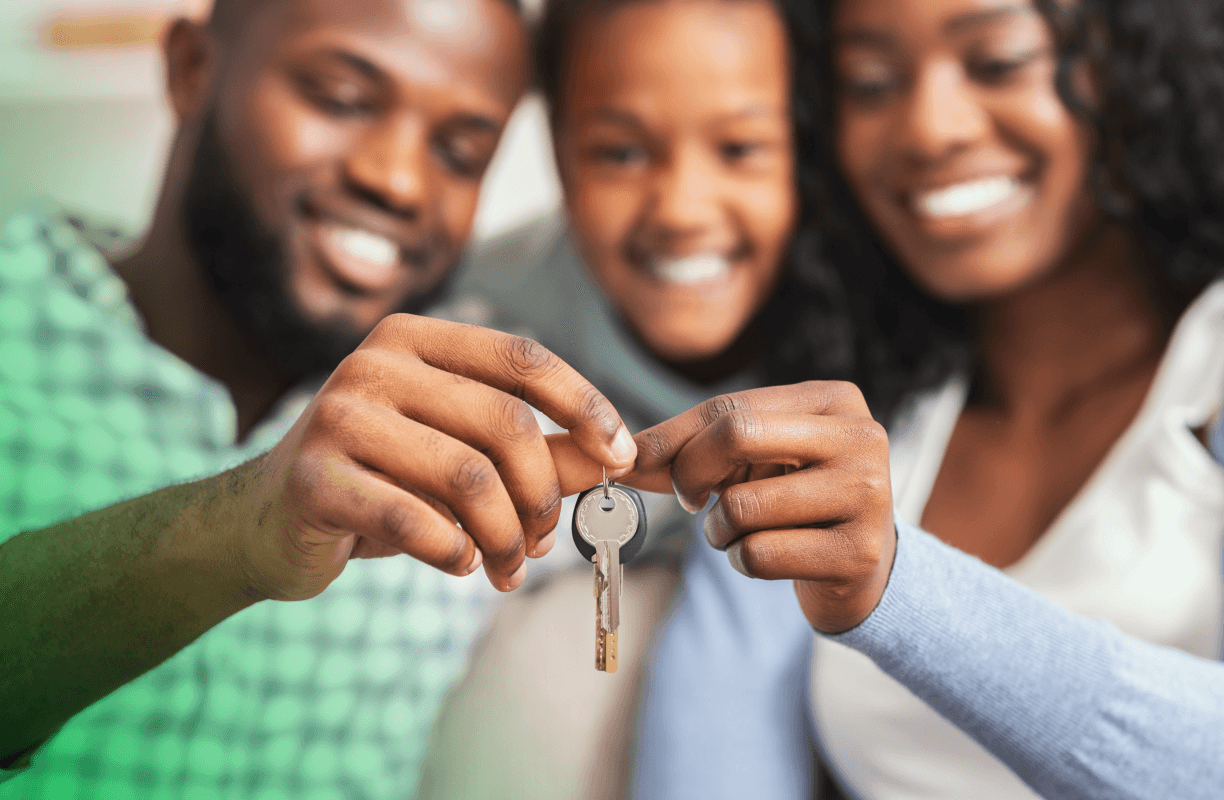You are now leaving the Bright website and entering a third-party website. Bright has no control over the content, products, or services offered, nor the security or privacy of information transmitted to others via their website. We recommend that you review the privacy policy of the site you are entering. Bright does not guarantee or endorse the products, information, or recommendations provided on any third-party website.
Over the next three years, Black Americans looking to buy a home could see a lot more open doors. New, targeted reforms could help level the playing field, substantially changing how Black Americans as well as others buy homes.
Fannie Mae and Freddie Mac, the two massive federally backed home lenders, will soon offer a leg up on credit scores, help with security deposits, more assistance with down payments and easier qualifying, along with other new programs.
For assistance with credit scores, Fannie Mae will launch a pilot program this year accepting rental payments as a factor in determining scores. The program aims to “help Black renters with no credit score establish a credit history and help those with low credit scores to increase them.”
Another pilot program will explore ways to reduce “upfront security deposit costs” on rental leases. The goal is to lower the hurdle of security deposits, helping Black renters qualify for better rentals. It also aims to protect savings for future homeownership.
In 2023, the Downpayment Assistance Program will also expand, increasing available funds as well as easing qualifications. It’s another significant move to help make homeownership more affordable to Black Americans.
Fannie Mae points to a significant racial gap, with 42% of Black households owning their home compared to 72% of white households. Black Americans have the lowest rate of homeownership among all racial groups in the U.S., despite having the highest aspirations: 87% of Black renters hope to own a home one day, more than both white renters (75%) and Latino renters (80%).
As Fannie Mae reports, “The median credit score for Black mortgage applicants is lower than those of white applicants (691 compared with 748)... while “about 15% of Black people are credit invisible [holding no history with credit reporting agencies]... which limits their access to financing.” In comparison, only 9% of white and Asian Americans are “credit invisible.”
The new programs from Fannie Mae “seek to address present-day obstacles rooted in housing’s history of racial discrimination — obstacles that many consumers face, not just Black homeowners and renters,” according to the lender’s report.
"This is Fannie Mae and Freddie Mac saying, 'Yes, there is an issue with equity in housing finance, and these are the steps we need to take to address them,’” said Naa Awaa Tagoe, acting deputy director for the Division of Housing Mission and Goals at the Federal Housing Finance Agency, in USAToday.
The report also acknowledges the current heated market, the lack of new housing and recent jumps in prices. “In fact,” the report claims, “the current lack of homes affordable to low- and moderate-income (LMI) households to purchase or rent is perhaps the most important structural barrier to housing equity in the United States.”
Homebuyer education will also get beefed up. New resources produced by Fannie Mae will address challenges and experiences common to Black Americans.
The extra focus on rental assistance is significant, acknowledging conditions specific to Black Americans. As the report explains, “For Black renters, the top reason for renting is to ‘become financially ready to own’; whereas for white renters, the top reason is ‘flexibility.’”
The housing crunch continues to intensify for Americans across the board. Mortgage rates have almost doubled in recent months, with 30-year fixed-rate mortgages moving from 2.75% over the winter to 5.25% in May.
Housing prices have also continued to rise. In the first quarter of this year, the median sale price of single-family existing homes rose at 15.7%, according to the National Association of Realtors, and while estimates vary, the uptick is expected to continue. Fannie Mae expects home prices to climb 11% in 2022.
It’s a one-two punch leading to what some advisors are calling “collapsed housing affordability,” a condition shared by all Americans. With Black Americans already lagging in homeownership, the new programs and assistance could be essential for the tough market ahead.



